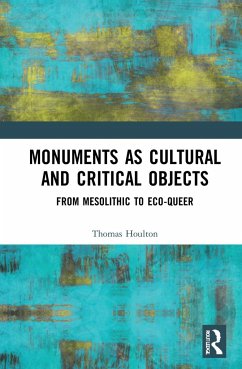
Post-Conflict Monuments in Bosnia and Herzegovina
Unfinished Histories
Versandkostenfrei!
Versandfertig in 6-10 Tagen
56,99 €
inkl. MwSt.
Weitere Ausgaben:

PAYBACK Punkte
28 °P sammeln!
At a time of dramatic struggles over monuments around the world, this book examines monuments that have been erected in post-conflict Bosnia and Herzegovina (BiH) since 1996.Examining the historical precedents for the high rate of monumentbuilding, and its links to ongoing political instability and national animosity, this book identifies the culture of remembrance in BiH as symptomatic of a broader shift: a monumentalisation and privatisation of history. It provides an argument for how to account for the politics of contemporary nation-state formation, control of space, trauma and revisions o...
At a time of dramatic struggles over monuments around the world, this book examines monuments that have been erected in post-conflict Bosnia and Herzegovina (BiH) since 1996.
Examining the historical precedents for the high rate of monumentbuilding, and its links to ongoing political instability and national animosity, this book identifies the culture of remembrance in BiH as symptomatic of a broader shift: a monumentalisation and privatisation of history. It provides an argument for how to account for the politics of contemporary nation-state formation, control of space, trauma and revisions of history in a region that has been subject to prolonged instability and crisis.
This book will be of interest to scholars in contemporary art, museum studies, war and conflict studies, and European studies.
Examining the historical precedents for the high rate of monumentbuilding, and its links to ongoing political instability and national animosity, this book identifies the culture of remembrance in BiH as symptomatic of a broader shift: a monumentalisation and privatisation of history. It provides an argument for how to account for the politics of contemporary nation-state formation, control of space, trauma and revisions of history in a region that has been subject to prolonged instability and crisis.
This book will be of interest to scholars in contemporary art, museum studies, war and conflict studies, and European studies.













